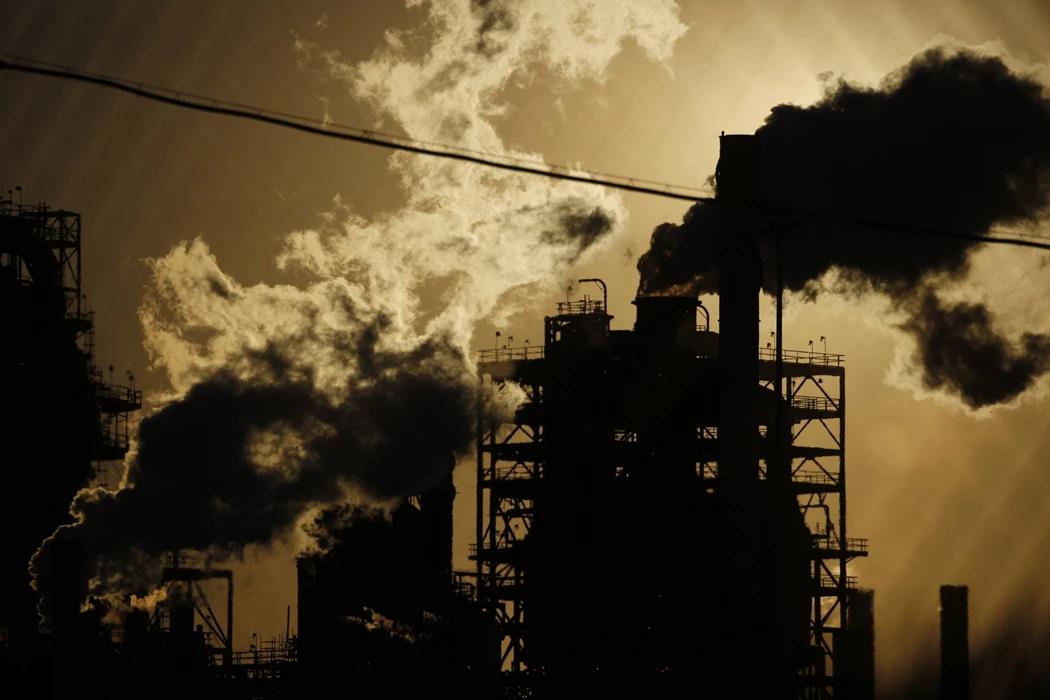
Currently, cutting green energy targets and doubling down on fossil fuels is a policy that President Donald Trump has been pushing for. In the long run, this will benefit the US economy but harm countries still betting on a green transition.
First, economists at Economic Research have studied how climate change and the costs of emissions reduction will affect national economies up to 2050. They found that if the US continues to sell more fossil fuels and avoids the costs of meeting green regulations, its GDP growth rate will be about 1% higher than if it continues to pursue a clean energy transition. However, according to model predictions, assuming other countries vigorously develop renewable energy, the global economy as a whole will shrink by 0.2% compared to the baseline scenario. Researchers say that while these economic impacts may not seem significant in the next 25 years, most of the real damage from global warming is expected to occur after 2050, increasing the economic costs for everyone from extreme weather and other consequences of climate inaction. They also point out that the risk of accelerated and ultimately irreversible climate change should not be ignored.
Secondly, a new report co-authored by Eleonora Mavroeidi and Maeva Cousin of the Economic Research Institute states: “If only Trump unilaterally relinquishes power, the US wins. If other countries do the same, the US loses, and almost all other countries lose as well.” Mavroeidi and Cousin argue that this illustrates the classic economic concept known as the “tragedy of the commons,” where different actors pursuing their own interests can lead to a worse overall outcome.
Furthermore, the US’s 180-degree turn on climate policy will be evident at the upcoming COP30 climate conference in Belém, Brazil. The absence of senior US representatives will leave the rest of the world to grapple with thorny issues such as 2035 emissions reduction targets and how to expand climate finance for developing countries and small island developing states.
Furthermore, the Economic Research Institute’s analysis assumes that the US will completely abandon renewable energy targets over the next 25 years, while the rest of the world continues to pursue them. However, the reality may be more complex. For example, last month, under pressure from the US, countries postponed a vote on a landmark regulation that would require the shipping industry to pay for its carbon emissions. The United States is not only the world's second-largest polluter but also a major producer of oil and gas, providing energy for itself and other countries. This summer, the Trump administration reached a trade agreement with the European Union, which included a commitment from EU member states to purchase $750 billion worth of US oil, gas, and nuclear energy. By expanding such policies, the US will become more competitive in the fossil fuel market, gaining market share while also mitigating some of the costs of a green transition.
However, researchers say another consequence of the US withdrawing from green policies could be that it could prompt other countries to follow suit. Models predict that if this happens, the US itself will be in a worse position. Compared to a scenario where all countries continue to develop renewable energy, the US economy, as well as the global economy, will shrink by about 1%, roughly the same amount, and global carbon dioxide emissions will increase by about 75%.
Regardless of whether most parts of the world adhere to a green transition, hot-climate, lower-income countries are expected to face the most severe impacts of climate change. Models show that India, Vietnam, and Indonesia are the biggest victims, with sub-Saharan Africa, the Middle East, and North Africa also affected. Meanwhile, cooler, wealthier countries, such as the US and Canada, are less affected by climate change and are therefore expected to suffer smaller losses.
In summary, current US energy policy does prioritize energy security and economic affordability over simply pursuing a green transition. This is a pragmatic adjustment based on current political and economic realities, but it undoubtedly introduces uncertainty into global climate action. However, due to the decentralized nature of the US energy decision-making system (state rights, market forces), the development of green energy has not completely stalled, but is instead seeking pathways within this new framework.

报告显示,中国电力投资加速增长,预计2024年电网基建投资将超过5300亿元。
近日,市场迎来了一则引人注目的消息:工业巨头3M公司(MMM.N)在本周五公布了其季度业绩报告,随后股价飙升至近两年来的
最近,外媒给OpenAI算了笔账,今年可能要血亏50亿美元。
近日,巴黎奥运会和世界铁人三项协会联合发布了一项重大决定,宣布因塞纳河水质污染问题,原定于近期进行的奥运会铁人三项首次下
当地时间7月18日,法国巴黎发生了一起令人震惊的持刀袭警事件。
近期,一则重大消息在国际舞台上引起轩然大波,马来西亚宣布加入金砖国家。
调查发现,互联网和智能手机的使用干扰了韩国近五分之一学生的生活。